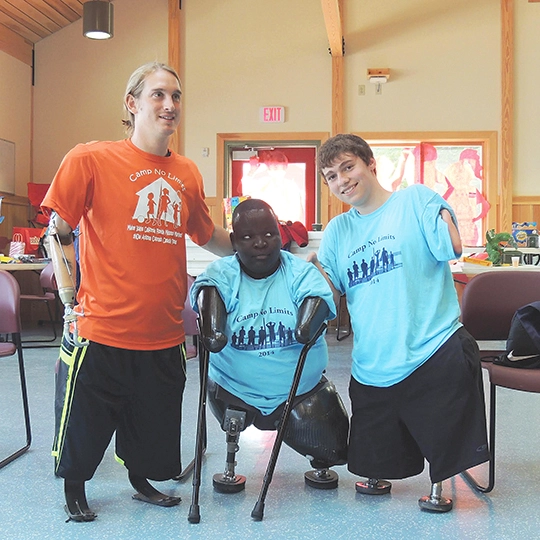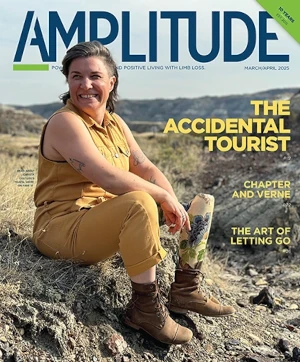
Once amputees reach a good stage in their own recovery, many find that doing something beneficial for others becomes one of their greatest joys.
“It makes me feel good to help others,” they say. “In fact, I think I get more out of it than they do.”
If you’d like to make a difference in the lives of others (and perhaps in your own life, too), the following are some suggestions for doing so:
Start a support group or become a peer visitor for amputees or people who have the same disease or disorder you have.
The Amputee Coalition offers training and certifies amputee peer visitors and provides informational materials to help those who’d like to start a support group. For more information, visit www.amputee-coalition.org, and click on the Support Groups & Peer Support tab.
Start a helping organization or volunteer with an existing one.
You could, for example, become involved in providing new or used mobility equipment for those in your area, or in helping individuals get involved in sports and recreation.
When he was 16 and lost his legs as a result of a boating accident in 2005, Jordan Thomas started the Jordan Thomas Foundation, an organization dedicated to providing prosthetic limbs to young amputees whose families can’t afford them. During his hospitalization, Thomas met many young amputees who didn’t have access to the prosthetic devices they needed. He decided then that his calling was to help others, and since that time his foundation (www.jordanthomasfoundation.org) has changed many lives.
You might also consider becoming a camp counselor and mentoring younger amputees. Many counselors talk about how fulfilling it is to help young amputees gain new skills and build their self-confidence and then keep in contact with them as they grow up.
Contribute money or raise funds for an individual or a nonprofit organization.
In 1973, when Jothy Rosenberg was 16, he lost his right leg to bone cancer and almost died from the disease. Three years later, the cancer spread to other parts of his body, and he lost one of his lungs as a result. Rosenberg defeated the cancer in his own life and now fights the disease on behalf of others. Today, he consistently proves that one person can make a difference. Since 2002, Rosenberg has participated in annual ride-a-thons to raise money for the Dana-Farber Cancer Institute; to date, he says he’s raised $120,000 to fund cancer treatment and research. Never one to do things on a low level, in 2013 Rosenberg started the Who Says I Can’t Foundation (www.whosaysicant.org) to help amputees acquire prosthetic limbs to participate in sports.
While dedication to making a difference in other people’s lives can take a lot of time from your own life, many say that it’s well worth it.
“I wouldn’t change a thing,” says Thomas. “Seeing a kid walk for the first time is unbelievable and the greatest gift I could ever give.”



